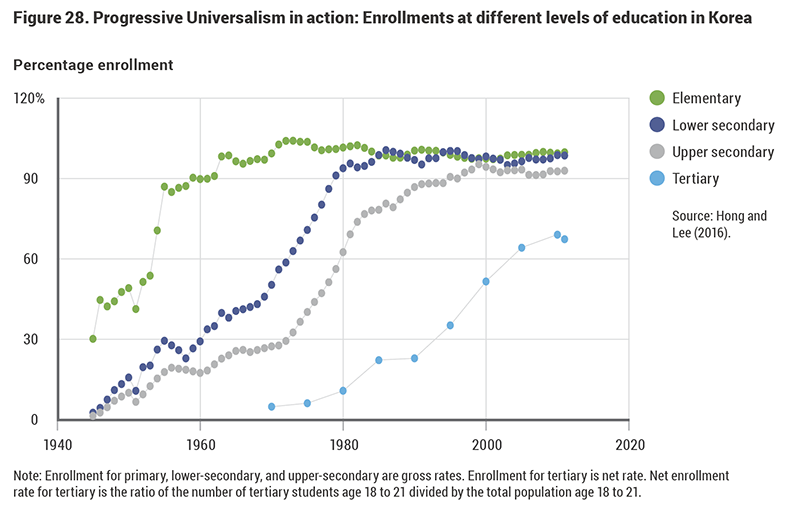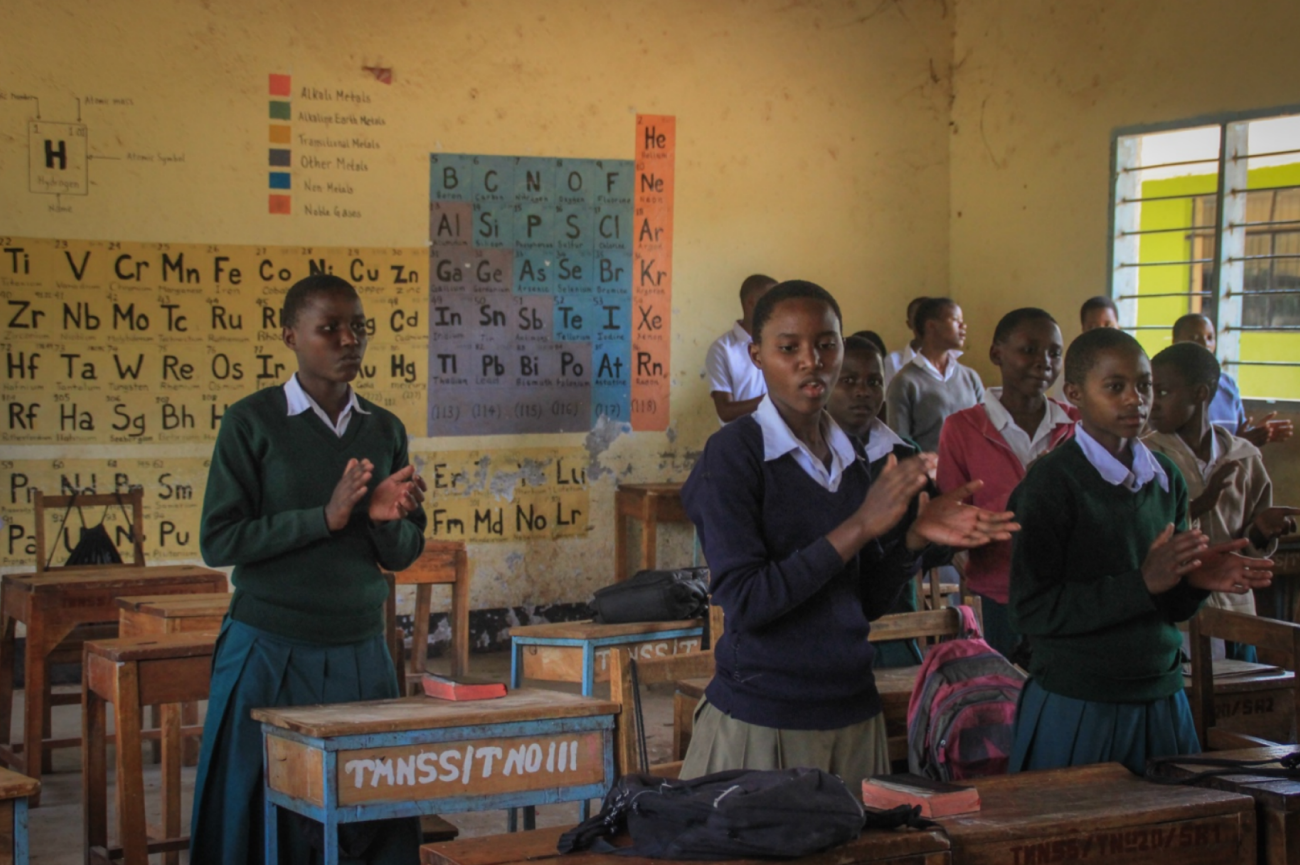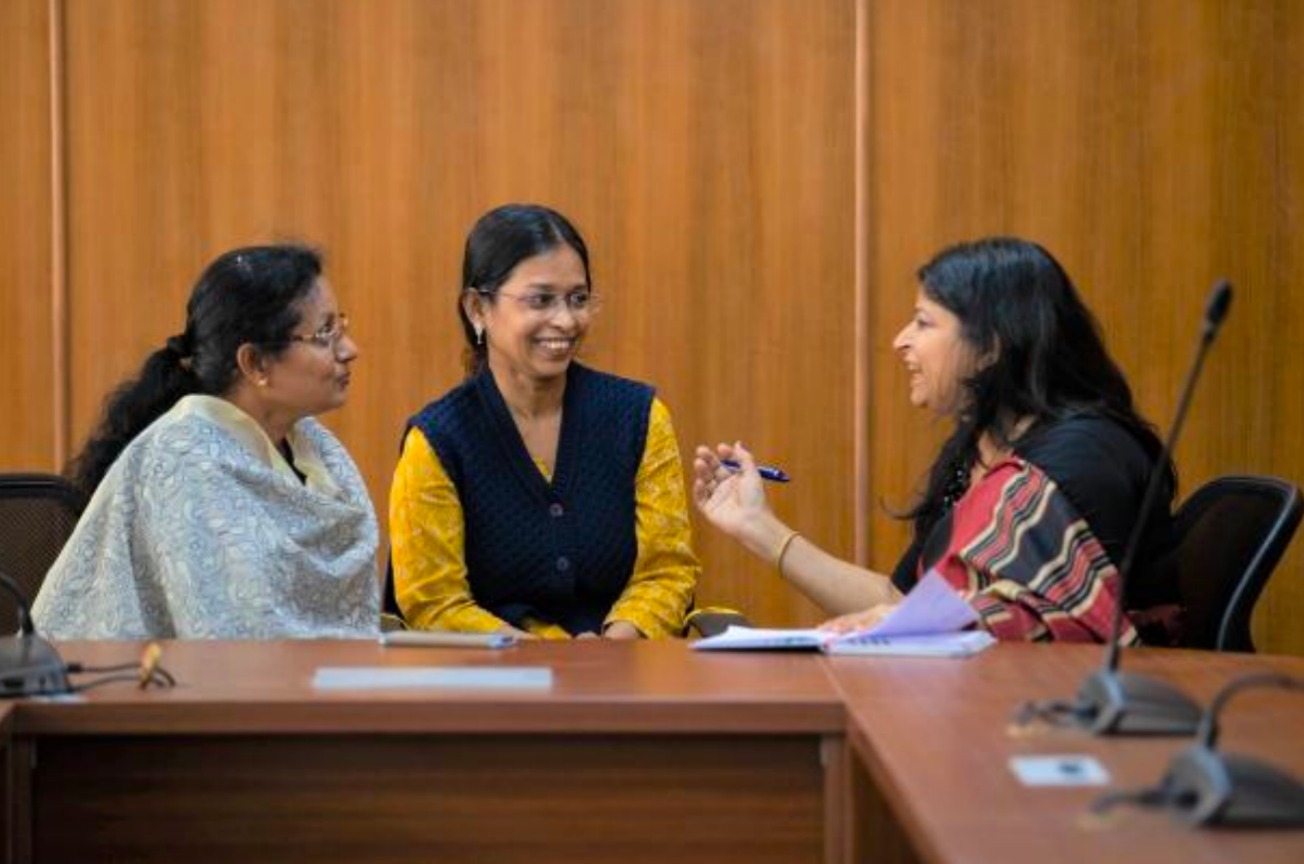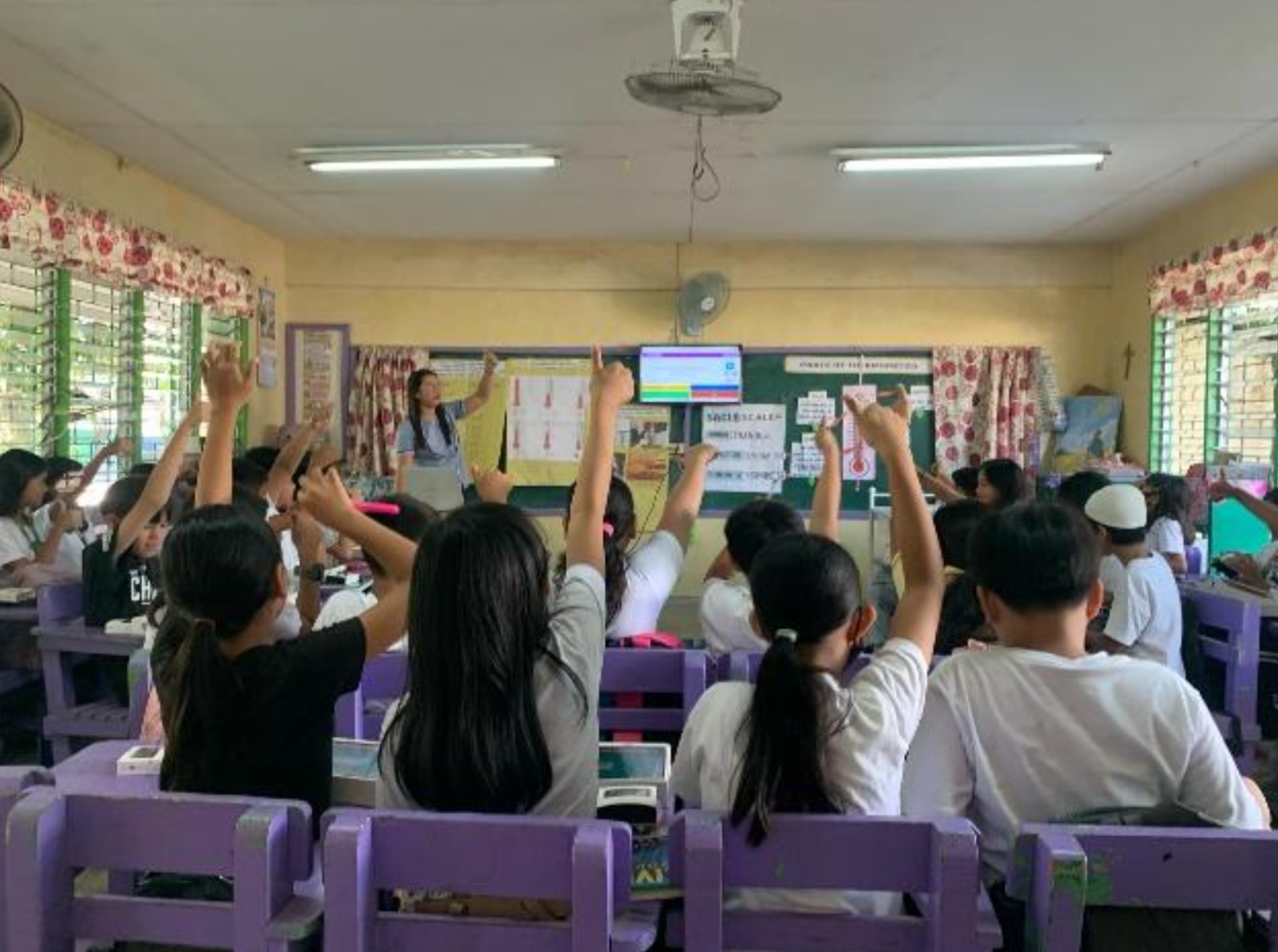In its Learning Generation report, the Education Commission says that successful education systems must reach everyone, including the most disadvantaged and marginalized children. We will not close the learning gap unless leaders take additional steps to include and support those at greatest risk of not learning – the poor, the discriminated against, girls, and those facing multiple disadvantages.
Because of this, the Commission has called stakeholders to take up a strategy called “progressive universalism”— pursuing quality education for all while prioritizing education in the early years of a child’s life and reaching out to the most disadvantaged populations, where social returns are often the highest. Progressive universalism requires investment across sectors to address educational exclusion.
“In advocating progressive universalism, the Commission recognizes the scarcity of public funding and proposes that funds be allocated to highest return activities and to those least able to pay for services…Progressive universalism has enabled Korea to provide a quality education for all.”
– Ju-Ho Lee, Education Commissioner and former South Korean Minister of Education
What does progressive universalism look like?
Take South Korea, a country that made policies in accordance with progressive universalism which, in turn, helped the country become a 21st century education and technology hub. Korea started with an emphasis on primary education. In the 1950s, the government enforced compulsory education and allocated about 80 percent of the educational budget for compulsory education, including significant investments in infrastructure. Enrollment reached 90 percent within a few years. The government then shifted emphasis and budgets to secondary school with similar rapid success, and only then turned major emphasis to higher education. This way, the country ensured that education reached all the children independent of their gender, means to pay, place of origin, or disability.

“Every child, in every country, in every neighborhood, in every household, has the right not only to a seat in a classroom, but to a quality education – starting in the early years of life, the single most important stage of brain development. We need to invest early, invest in quality, and invest in equity – or pay the price of a generation of children condemned to grow up without the knowledge and skills they need to reach their potential.”
– Anthony Lake, Education Commissioner and UNICEF Executive Director
Inspiring others
The Commission is taking these messages – and proof of progress as exemplified by the Korea case study – to leaders of global institutions and international development agencies. For example, Commissioner Jakaya Kikwete has led efforts to introduce the strategy to presidents, prime ministers, cabinet officials, development leaders, and civil society leaders of 14 African countries. His delegation visits have stressed the critical role that progressive universalism can play in building a Learning Generation.
Numerous international organizations and major corporate foundations working in education have responded to the Commission’s call by launching advocacy campaigns based on progressive universalism or by strategically prioritizing the poor and disadvantaged in their program strategies.
UNICEF, an organization with a strong tradition of focusing on the most marginalized, is using progressive universalism to inform their upcoming Education Strategy and employing the Commission’s recommendations in Regional Education Network meetings, Global Education Team meetings, and with UNICEF National Committees to inform work and funding priorities.
Theirworld, an international civil society organization, launched its global #5for5 campaign last February. This campaign explains the importance of prioritizing the early years of a child’s life; 90 percent of a child’s brain develops by the time she reaches five years old. The campaign films – which have been viewed by more than one million people – ask world leaders to invest in early childhood development and education and has specifically called attention to the Commission’s appeal that every country in the world provides two years of free, quality pre-schooling to every child. This point was reiterated in Theirworld’s June report Bright and Early: How financing pre-primary education gives every child a fair start in life. The organization also calls on stakeholders to back the Commission’s proposed International Finance Facility for Education to help finance quality pre-primary education programs.
The ONE Campaign’s 2017 Poverty is Sexist report calls for both increased financing and domestic reforms to improve quality education specifically for girls, whose educational opportunities are disproportionately affected by poverty. This report, which utilized several analyses from the Learning Generation report, is part of the #GirlsCount movement that pressures leaders to change the trajectories of the 130 million girls out of school.
The International Disability and Development Consortium’s report #CostingEquity: The case for disability-responsive education financing provides a disability perspective on donor and government investments. The report draws on many Commission analyses to support its case. It also utilizes our recommendations – including incorporating higher costs for learners with disabilities, and leveraging cross-sector investment and technology – to advocate for inclusive education.
UNESCO International Institute for Educational Planning’s Strategic Debate workshop Towards progressive universalism: the impact of inequalities on learning achievement drew on Commission analyses showing the inequities of educational access. The workshop highlighted that when children from poor backgrounds have the same opportunities as those from rich backgrounds, learning gaps narrow significantly. It further identified the importance of changing how public resources are allocated to achieve progressive universalism.
The Commission, along with our partners at the international and country levels, will continue to catalyze global agendas and support local actions based on the principles of progressive universalism.



